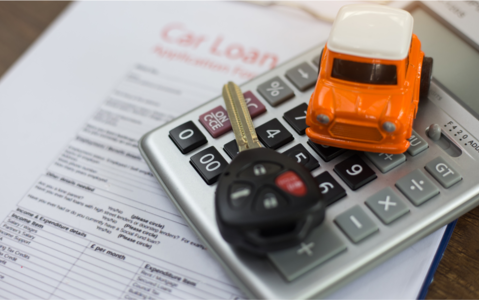In this article, we'll explain what car finance is, the most common types of car finance, and what options you have when looking to finance your next vehicle purchase.
Buying a new car is an exciting experience, but it can also be daunting when it comes to figuring out how to pay for it. With the various car finance options available today, you have some flexibility in how you can spread out the cost over time rather than paying the full amount upfront. In this article, we'll explain what car finance is, the most common types of car finance, and what options you have when looking to finance your next vehicle purchase.
What is Car Finance?
Car finance refers to any type of loan or borrowing arrangement that allows you to spread out the cost of buying a car over a period of time through fixed monthly repayments. The car acts as collateral on the loan. The lender technically owns the car until you finish repaying the loan.
Rather than paying the full cost of the car up front, car finance allows you to only put down a deposit and then make monthly payments towards the remaining balance. This makes acquiring a new vehicle more affordable, especially one with a high price tag.
Common Types of Car Finance
There are a few main types of car finance options available from lenders and dealerships:
Hire Purchase (HP) - This is the most common type of finance. You'll make fixed monthly payments over an agreed term, usually between 12-60 months. Once you've made the final payment, you own the car.
Personal Contract Purchase (PCP) - With PCP, you agree to a deposit, fixed monthly payments, and contract term of 2-4 years. At the end of the term, you either pay the remaining “balloon” payment to own the car, return it, or refinance any outstanding amount into a new PCP plan.
Personal Loan - A personal loan usually has fixed rates and terms up to 5 years. The loan amount can cover the full cost of the car. You own the car as soon as you purchase it.
Lease Purchase - This is a blend of leasing and financing. You lease the car between 2-4 years and make monthly payments. At the end of the term, you pay a final “balloon” payment to purchase the car outright.
Personal Leasing - Also known as contract hire, you simply pay to lease the car for an agreed timeframe, usually between 1-4 years. You return the car at the end of the term rather than owning it. This option has the lowest monthly payments but you have nothing to show for it at the end. Depending on the down payment first will determine how much you pay each month, a bigger deposit, smaller monthly payments.
What are the Benefits of Car Finance?
More affordable payments - Spreading the cost over 12-60 months will make the car more attainable. Monthly payments are lower than paying the full amount up front.
Fixed interest rates - Most car finance deals have fixed rates agreed upon, so your monthly payments do not fluctuate.
Flexible terms - Car finance terms can range from 12 months to 4 years or more. You can find an ideal repayment timeframe for your budget.
No restrictions on vehicle type - Car finance allows you to acquire new and used cars, plus luxury, sports, and SUV models that may normally be out of your price range.
Ability to upgrade regularly - Shorter term car finance deals like PCP let you update to a new car model every few years.
What Should I Consider When Choosing Car Finance?
If you decide to finance your next car, here are some things to keep in mind:
Interest rates and APR - Compare interest rates (fixed vs variable) and the annual percentage rate (APR) from lenders. This impacts the total amount you end up paying.
Monthly payment amount - Make sure the monthly payment fits comfortably within your household budget.
Deposit amount - The larger your deposit, the less you have to finance and pay interest on. Save up if you can.
Contract term length - A longer term gets you lower payments but higher total interest. Find the right balance for your situation.
Mileage limits - Leasing and PCP deals limit mileage, usually between 8k-15k per year. Excess mileage leads to fees.
Condition upon return - Leasing and PCP options have strict requirements regarding the car's condition when returned. Damage or wear-and-tear fees may apply if bringing it back in poor condition
By understanding the pros and cons of the various finance options available, you can make an informed decision on the best route to take when investing in your next car.
We have hundreds of cars in stock for you to choose from and can tailor your finances to your individual needs. Browse our stock today and start the process of that next car sooner than you thought…




